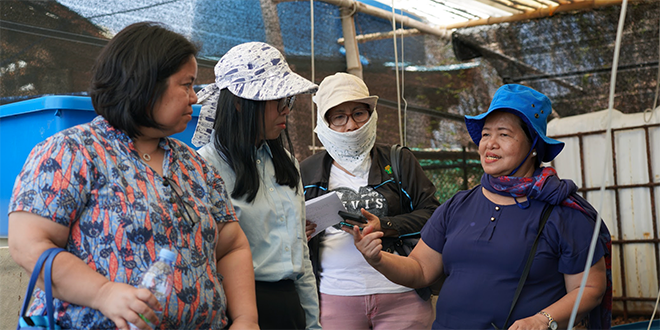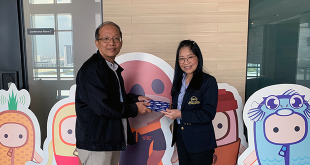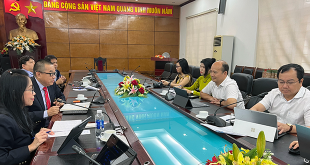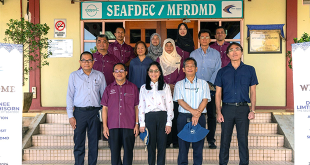SEAFDEC officials led by the Secretary-General, Dr. Suttinee Limthammahisorn, together with the Policy and Program Coordinator of the SEAFDEC Secretariat, Dr. Worawit Wanchana; Project Planning and Management Division Head of Training Department (SEAFDEC/TD), Mr. Isara Chanrachkij; Chief of Aquaculture Department (SEAFDEC/AQD), Mr. Dan Baliao; and AQD senior staff paid a courtesy visit to Department of Agriculture-Bureau of Fisheries and Aquatic Resources (DA-BFAR) of the Philippines.
The SEAFDEC delegation was warmly welcomed by the Undersecretary for Fisheries of DA and SEAFDEC Council Director for the Philippines, Ms. Drusila Esther E. Bayate, and Director of BFAR and SEAFDEC Alternate Council Director for the Philippines, Atty. Demonsthenes R. Escoto, at BFAR Central Office in Manila on 11 April 2024. In the meeting between SEAFDEC and DA-BFAR, the discussions centered around the pivotal role of SEAFDEC in promoting sustainable fisheries development across Southeast Asia for over 55 years and its activities in supporting the ASEAN Member States, emphasizing coordination SEAFDEC/TD and BFAR in marine fishery resources research and development. Moreover, the meeting also delved into strategies for sustainable aquaculture development where AQD Chief and officials provided valuable insights.
On the second day, the SEAFDEC delegation visited the Regional Fisheries Training Division and Fisherfolk Coordination Center in Alaminos City, Pangasinan to discuss capacity-building initiatives and community-based approaches to coastal and marine aquaculture development. During the dialogue, Dr. Suttinee and Mr. Baliao underscored the importance of empowering small-scale fish farmers and enhancing their resilience to environmental challenges. Furthermore, DA-BFAR personnel also accompanied SEAFDEC officials for a field visit to the BFAR Regional Mariculture Technology Demonstration Center in Lucap, Pangasinan.
The visit has strengthened advocacy for collaboration and cooperation between SEAFDEC and BFAR in various activities, including research, training programs, and joint initiatives to address regional and international fisheries-related issues.
 SEAFDEC Southeast Asian Fisheries Development Center
SEAFDEC Southeast Asian Fisheries Development Center




